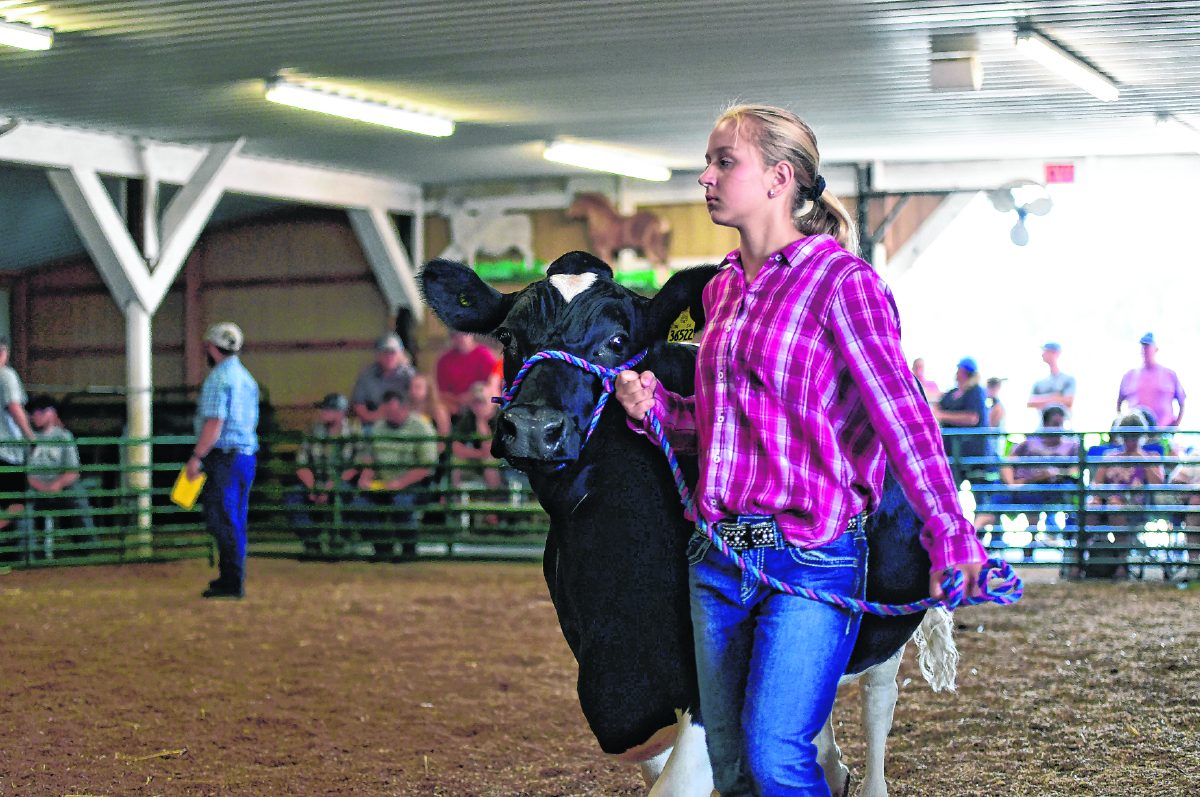
Despite the cancellation of this year’s Jackson County Fair, many of the event’s 4-H activities will proceed virtually.
Like most other events either canceled or altered over the last few months, the decision was made because of concerns related to the COVID-19 pandemic.
Heather VonDielingen, 4-H youth development educator for Jackson County, said while the decision to change was tough, she stands by it.
[sc:text-divider text-divider-title=”Story continues below gallery” ]
“I fully support the decision of our local stakeholder groups to move to a virtual format for 4-H exhibition in 2020,” she said. “This decision was not made by one person or group, but multiple 4-H volunteers in collaboration with several community leaders. The community can rest assured that these decisions were not easy to make and were not made without a great deal of thought and research.”
VonDielingen believes restrictions and guidelines set by Indiana Gov. Eric Holcomb and his Back on Track plan would have forced the fair to undergo big changes that may have negatively altered the experience.
“The projected guidelines in which the Jackson County Fair and any live 4-H event would have to abide by made it impossible to provide the same 4-H and fair experience we have been accustomed to providing over the last several years,” she said.
This year’s livestock auction will instead be a virtual alternative auction with no live animal exchange.
In prior years, bidders would bid on the total price of each animal, and the winning bidder would have the option of sending the animal to market or to a local meat locker.
The winning bid was comprised of the animal’s market price and the premium price. If the bidder chose to send the animal directly to market, they would be given credit for the established market price of that animal and only pay the premium price.
If the bidder chose to send the animal to a meat locker, the bidder would pay the full amount of the winning bid.
Because there is no animal exchange this year, all donations will be considered premium money. The alternative auction will only be a fundraiser.
The 4‐H auction committee will allocate the total amount of premiums raised across all 4-H livestock exhibitors that would normally participate in the auction. The end result will be the same if the normal auction were to take place and all of the animals purchased were sent to market with the exception of the allocation of the funds across the 4‐H’ers.
The Jackson County 4-H auction committee explained this decision.
“First, we are allocating the funds because we know that local businesses and individuals have been impacted by recent world events and may not have as much available to donate this year,” 4-H Council President Jason Wynn said in a newsletter to members.
“Second, we want to be as fair as possible to the 4‐H’ers and make sure that each is able to receive some kind of support,” he said. “We have chosen to allocate the funds based on the historical premium rates received by each species over recent auction years. We feel this is fair because the premiums tend to be higher for the animals that are more expensive to raise.”
Additionally, changes have been made to other aspects of the exhibit. Projects and animal evaluations will now be shown either through YouTube or by taking and uploading images online.
These changes are something VonDielingen believes 4-H’ers will be able to adapt to.
“Learning is at the heart of 4-H, and our 4-H members are still learning,” she said. “While the public display is going to look different this year, the learning is still happening, and our 4-H members are hard at work on their 4-H projects. While 2020 will look much different than past years or any year in the future, our 4-H members are resilient and will get through this tough time together.”
VonDielingen said she expects this new process to go smoothly.
“I expect the virtual exhibition to go well,” she said. “Several 4-H members have already uploaded their projects to our fair entry system, and we expect hundreds more in the next few weeks. We look forward to showcasing the hard work of our 4-H members in 2020, just as we do any other year. 4-H is a year-round program, and much learning has already taken place during the 2019-20 4-H program year.”
Those interested in viewing this year’s virtual submissions will be able to do so online. VonDielingen said the county 4-H will be working with Seymour’s 3 to 1 Video to put together videos of the livestock results.
More details about that will be available in the future.
[sc:pullout-title pullout-title=”At a glance” ][sc:pullout-text-begin]
For information, contact Purdue Extension Jackson County at 812-358-6101.
[sc:pullout-text-end]
